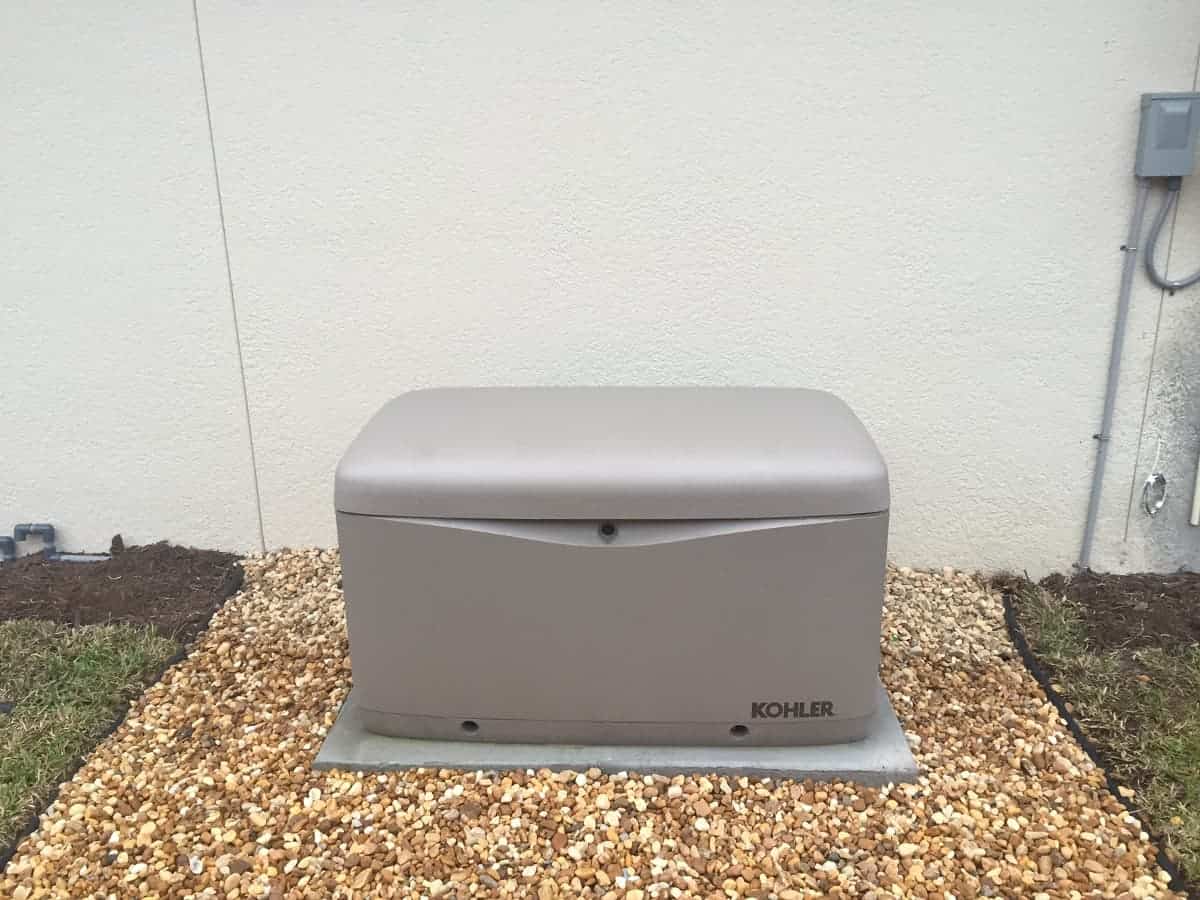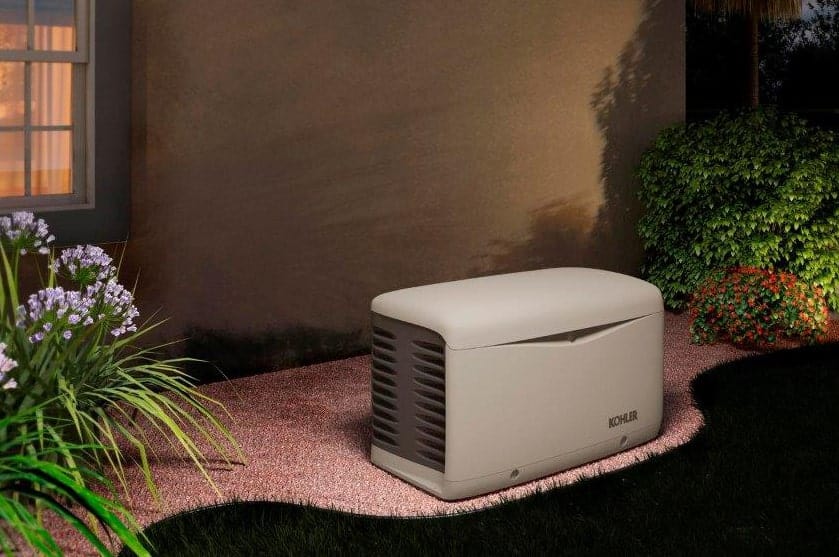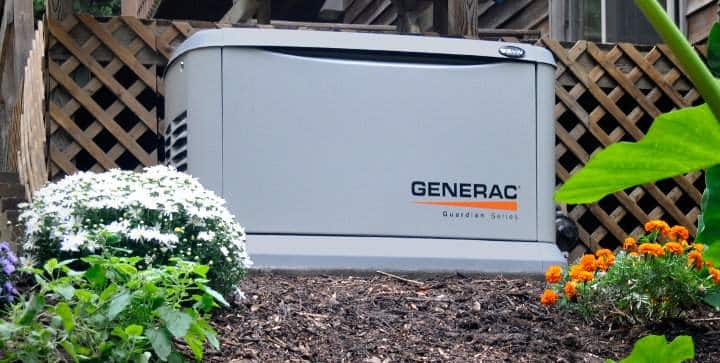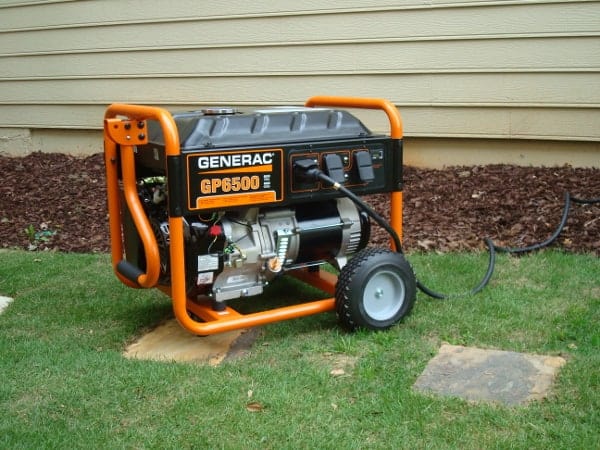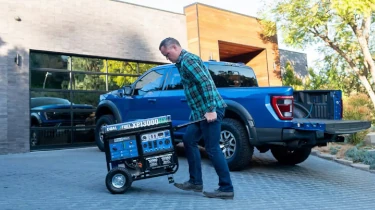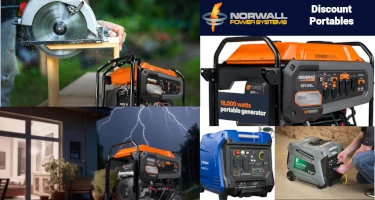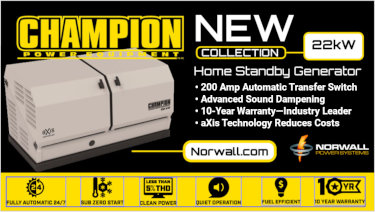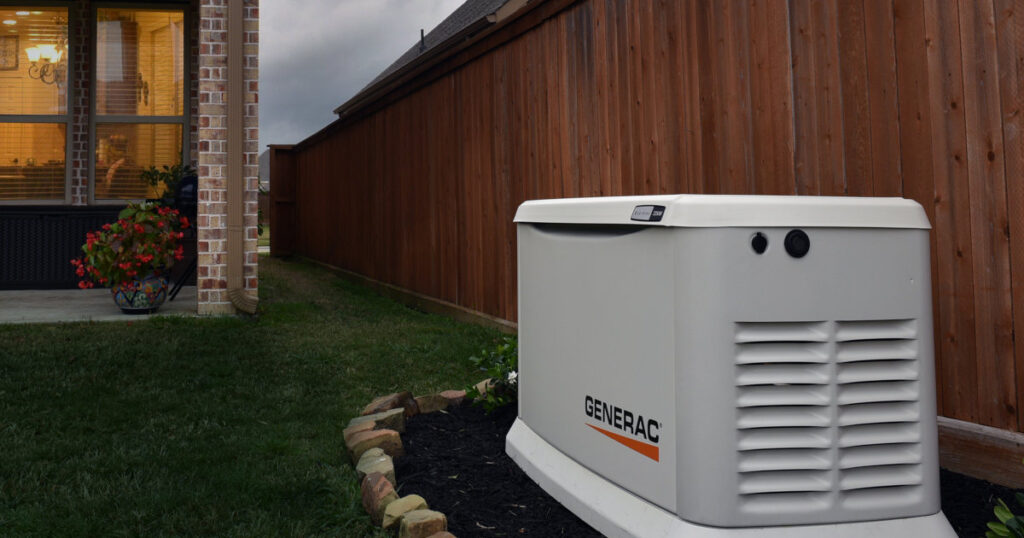As our reliance on electrical power grows, our lives are increasingly impacted by a loss of power, whatever the reason. Interruptions range from events that affect only a few homes, to entire regions, and causes include violent weather events, automobile accidents, and human error.
Standby generators provide electrical power when the supply from the electric utility is interrupted. Unlike portable units, a standby generator starts and runs without operator intervention in the event of a power emergency. They work with an automatic transfer switch which selects between utility power and generator power.
Refrigeration
It only takes a few hours for the temperature inside a refrigerator or freezer to begin rising, even if the door is kept closed. Once the temperature of a refrigerator reaches 40 degrees, the rate at which food becomes unsafe to eat increases dramatically. And each time the door is opened, the temperature rises again.
Food begins to thaw at 32 degrees and it may take as little as 12 hours for some freezers to reach the thaw point. A standby generator can keep food from thawing and spoiling even during extended outages that last days or even weeks.
Heating and Cooling
 The systems that cool and heat homes do more than provide comfort and safety for people. Heat prevents pipes from freezing. Frozen pipes often burst, and when they do the resulting flood is devastating. The pipe that leads into a home can supply hundreds of gallons of water per hour. If you’re not home to shut it off, or to call a plumber to shut it off at the street, the ensuing flood can cause thousands of dollars in damage.
The systems that cool and heat homes do more than provide comfort and safety for people. Heat prevents pipes from freezing. Frozen pipes often burst, and when they do the resulting flood is devastating. The pipe that leads into a home can supply hundreds of gallons of water per hour. If you’re not home to shut it off, or to call a plumber to shut it off at the street, the ensuing flood can cause thousands of dollars in damage.
Summer heat and humidity can take its toll quickly on people, and keeping the air conditioner operational during a power outage may mean the difference between camping out in a hotel or staying home and sleeping in comfort.
Medical Equipment
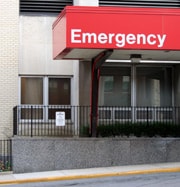
Modern hospital simply couldn’t save lives and function the way that they do without the support of electrical backup systems.
The use of home medical equipment has increased dramatically in the past two decades. Oxygen concentrators, wheelchair lifts, equipment for paraplegics and quadriplegics, ventilators and CPAP machines, and even home dialysis equipment all rely on electrical power. Many of these devices run off an uninterruptible power supply, but those require batteries that only last a short time.
Standby generators that supply utility-grade power can keep home medical equipment operating. Those using the equipment are able to stay home instead of packing up their equipment and seeking shelter elsewhere.
Safety Systems
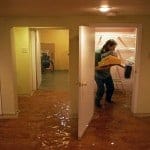
Lisa Dunn works to salvage what she can from her newly-remodeled, now flooded, basement of her Greenwood home in Seattle on Monday, December 3, 2007. (Staff Photo/Seattle Post-Intelligencer/Mike Kane)
Home alarm systems provide security and safety that many homeowners rely on to protect their families and property. When the power goes out, the battery that powers a security system may last less than a day, leaving the home vulnerable. This is especially true after a widespread disaster such as a hurricane or other weather event when the power may be out for days or even weeks.
Sump pumps keep basements dry by removing water. Power outages frequently occurs during storms when the pump is needed the most. In some areas, flooding can begin just minutes after the power goes out. Even a battery-backup pump will only last a few hours during a heavy storm. With a standby generator operating automatically, even when you are not home, the pump keeps running and the basement stays dry.
Comfort
 The last thing anyone needs is a power outage. Without electricity, none of the day-to-day conveniences of everyday life are available. Cooking becomes more difficult, the computer and TV don’t work, kids can’t play their games. When night arrives the candles come out.
The last thing anyone needs is a power outage. Without electricity, none of the day-to-day conveniences of everyday life are available. Cooking becomes more difficult, the computer and TV don’t work, kids can’t play their games. When night arrives the candles come out.
A generator can keep the power on while utility crews work on restoring the flow of electricity to neighborhoods, towns, and cities. When utility power is restored, the transfer switch automatically reconnects the home to the utility supply and the generator shuts down, whether you’re home, at work, or on vacation. There are models to meet every need, from units for small homes and cottages to models for large luxury homes.

